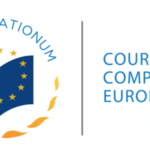This call intends to develop a modular and interoperable solution to enhance situational awareness and operations in the maritime environment through the development of a multi-sensors and scalable capability to detect, classify, track, and identify threats across a wide area of missions, including the ability to counter adversary attempts to use low-observability materials, designs and technologies to escape detection.
Scope
The proposals must address the development of an integrated solution able to enhance the maritime situational awareness improving detection, classification, tracking, and identification of threats (air, surface and under-water) including the ability to counter adversary attempts to use low-observability materials, designs and technologies to escape detection, with focus on maritime littoral, high sea areas, harbour protection and critical infrastructure.
The proposals must address the following elements:
- a maritime surveillance secure digital platform, able to grant real time info sharing;
- information and data fusion services to merge information and data from different sources, exploiting the large amount of open maritime data;
- detection of anomalous and malicious behaviours, for example by making use of algorithms of artificial intelligence and big data analytics;
- forecast of the evolution of a maritime situation, for example by using predictive algorithms, in support of rapid decision making;
- a multi-sensor, multi-target, common operating picture to enhance situational awareness;
- a collaborative environment among users to share operation data;
- an architecture able to integrate:
- innovative active and passive sensors with associated relevant networks (e.g. sonar, electromagnetic, multi/hyperspectral, video, IR, land-based radar surveillance, effectors);
- robotics and automated systems for maritime surveillance equipped with different kind of sensors integrated in unmanned surface (USV), underwater (UUV) and aerial vehicles (UAV), both fixed wing and rotary wing;
- space based sensors such as, but not limited to, AIS (Automatic identification system), optical (including multi/hyperspectral and IR), radar (including SAR), ESM (Electronic support measures) (including ELINT (Electronic intelligence).
- interoperability with heterogeneous systems, including existing systems already available across Europe;
- communication infrastructures to support information management and dissemination;
- Man-Machine teaming approach based on user experience to provide ergonomic, customisable and layered interface to the operators.
Targeted activities
The proposals must cover the study and design of the proposed solution, not excluding downstream activities.
The targeted activities must in particular include:
- feasibility study, including CONOPS, specifications, detailed requirements reviews and architecture definition. Requirements analysis for new sensors will be part of the study;
- detailed design, including the Preliminary Design Review (PDR) and the Critical Design Review (CDR) of the proposed solution.
The proposals could also include the development of small-scale technological demonstrators, in order to support decision making during design phase.
Deadline
01 December 2020 17:00:00 Brussels time







Leave a Reply